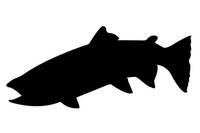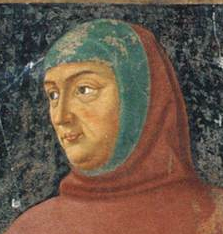 In September 2002, water diversion and drought combined to create conditions for a massive fish kill of some 60,000 spawning salmon on the Klamath River.
In September 2002, water diversion and drought combined to create conditions for a massive fish kill of some 60,000 spawning salmon on the Klamath River.
The kill was a stunning environmental and natural resource management disaster, and a tragedy for the tribes on the Lower Klamath, whose culture and livelihood depended on the fish.The event drew national news attention, highlighting the story as an example of the struggle between downstream (tribal) and upstream (farmers and ranchers) water users.
Enter Theresa May, assistant professor of theater arts at the UO and an artist who believes in the power of theater to open hearts and create dialogue.
At the time, May was an assistant professor at Humboldt State University in California. Shocked by the devastating event, she saw an opportunity for theater to humanize a polarized political situation that had been poisoned with explosive rhetoric.
Not sure where to start, May began by talking with Native colleagues, students and community members about the possibility of a play that would tell the story of the tribal people whose lives had been impacted by the fish kill. Together they initiated the Klamath Theatre Project.
Over the course of two years, May worked with Native and non–Native students to conduct interviews with the Karuk, Hupa and Yurok communities, a project that eventually expanded to incorporate a fuller range of voices including commercial fishermen, white water rafters and the farmers and ranchers of the upper Klamath Basin. From the words of the people emerged a moving story about the complex relationship between humans and the natural environment.
The play, Salmon Is Everything, had its first workshop production at Humboldt State’s Studio Theater. Actors included many of the Native students who had helped create the text, as well as Native faculty and staff members, theater students and community actors.
“We filled the theater. People came who had never been in a theater, or even set foot on campus,” May recalled. “The play was very significant to the river community.”
The play is an important historical document that tells a story about the diversity of people in the Pacific Northwest whose lives are closely tied to the region’s rich natural resources, particularly its water and fish.
“We need to hear everyone’s stories to meet the ecological challenges on this river and elsewhere,” said May. “Community-based theater is a powerful forum for community healing, and can lead us toward a more compassionate civic discourse.”
This spring, May will be directing Salmon Is Everything on the UO’s Robinson Theatre stage. She hopes to involve local Native communities as well as Native students in the production.
Salmon Is Everything will open May 20 and run through June 4.
— Patricia Hickson





 A new course will provide UO students with mobile smart phones and a mission: to build smart-phone apps.
A new course will provide UO students with mobile smart phones and a mission: to build smart-phone apps.
 Two CAS faculty members have been honored with the 2011 UO MLK Award.
Two CAS faculty members have been honored with the 2011 UO MLK Award. Petrarch is not only going digital at the UO, but musical as well.
Petrarch is not only going digital at the UO, but musical as well.